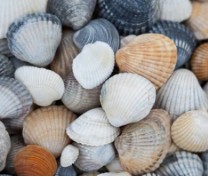
Mollusks have a strong ability to enrich pollutants in the environment, and the variety of species, biological characteristics, and environmental pollutant types of services result in complex quality and safety risks that are difficult to control. Lifeasible helps customers to sort out the main safety risks and identify the safety risks in different species of mollusks by providing testing of various risk substances and can provide suggestions and solutions for management measures for various existing problems.
Mollusks filter plankton and organic debris from the water column and change the structure and population of the plankton in the water column, which in turn changes the plankton structure and population in a favorable direction. Some mollusks have a strong enrichment effect on pollutants such as heavy metals and radioactive elements in the water body, through which the content of pollutants such as heavy metals and radioactive elements in the water body can be significantly reduced, thus improving the water body environment. Organic pollutants are essential factors affecting the safety of mollusks, among which POPs are of most concern. Common POPs mainly refer to some polycyclic aromatic hydrocarbons (PAHs), such as halogenated hydrocarbons like polychlorinated biphenyls (PCBs), biphenyl-like organic hydrocarbons, organic hydrocarbon pollution caused by oil extraction and chemical industry, etc., mainly from pesticides, industrial chemicals, and by-products of production. In addition, marine biotoxins are also significant safety hazards.
Lifeasible currently has professional biologists, and chemists, and can provide professional solutions to help our clients with risky substance testing while also being able to provide targeted and effective recommendations and solutions.
Lifeasible offers a wide range of PCR assays for the rapid detection of mollusk allergens. The development of multiplex PCR assay services can provide allergy sufferers and seafood manufacturers with the benefits of preventing, labeling, monitoring, and regulating the allergen myosin in processed mollusk shellfish.
Determination of chloramphenicol in mollusks by liquid chromatography-tandem mass spectrometry.
The main heavy metals that pollute the sea are lead, cadmium, arsenic, and mercury. They are enriched in different seafood and passed to humans through the food chain, causing harm to human health.
The detection of organic pollutants in mollusks was performed by gas chromatography-mass spectrometry (GC-MS) and liquid chromatography-mass spectrometry (LC-MS). It not only gives feedback on the decomposition of pollutants by mollusks but also detects the environment to some extent.
Biotoxins, also known as natural toxins, are toxic chemicals of biological origin that are not self-replicating and include chemicals produced by animals, plants, and microorganisms that have toxic effects on other biological species.
If you are interested in our services, or if the service you want is not listed, please feel free to contact us, and we will get back to you as soon as possible.